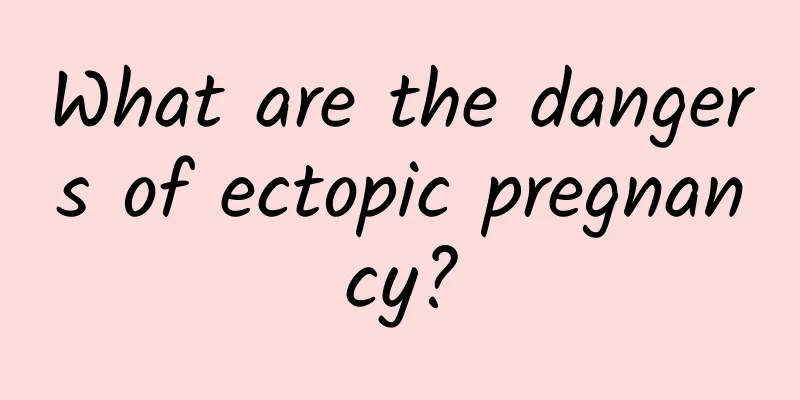What are the dangers of ectopic pregnancy?

|
Expert answer: Many women will have ectopic pregnancies, but pregnancy is not easy to clear, so the dangers of ectopic pregnancy are very high. Once pregnant, you should check in time to avoid accidents. Here are some of the hazards of ectopic pregnancy: ① Tubal pregnancy abortion. It usually occurs in the ampulla of the fallopian tube. When the embryonic sac bulges into the tubal cavity, due to the fragility of its capsule tissue, it often ruptures and bleeds at 6 to 12 weeks of pregnancy, and the fertilized egg is discharged into the abdominal cavity through the fallopian tube from the umbrella end. If the embryo is completely peeled off and flows into the abdominal cavity, it will form a complete tubal abortion, and the amount of bleeding is generally less. If the embryonic sac is not completely peeled off, part of it is expelled, and some villi are still attached to the tube wall, it is an incomplete tubal abortion. At this time, the trophoblast cells can remain active for a considerable period of time and continue to erode the tubal tissue, causing repeated bleeding. When a large amount of blood flows into the abdominal cavity, it can cause shock. The embryonic tissue after tubal abortion is finally absorbed. ② Rupture of tubal pregnancy. After the fertilized egg implants in the fallopian tube, the villi erode the muscle layer and serosa, and finally penetrate the tube wall, resulting in rupture of tubal pregnancy. The fertilized egg is discharged from the fissure, and a large amount of blood flows into the abdominal cavity, which can cause shock in severe cases. The rupture of the isthmus of the fallopian tube usually occurs around 6 weeks of pregnancy. Rupture of the ampulla of the fallopian tube usually occurs between 8 and 12 weeks of pregnancy. In the interstitial part of the fallopian tube, the uterine muscle layer surrounds the lumen of the tube, so rupture does not occur until the fetus is 3 to 4 months old. Since there are many blood vessels in this area, once ruptured, massive internal bleeding may occur, which may be life-threatening. Regardless of whether the fallopian tube pregnancy is aborted or ruptured, if the onset of the disease is not treated in time, the fertilized egg will die, the internal bleeding will gradually stop, and a hematoma will form. After a period of time, the hematoma will become organizational and hard, and adhere to the surrounding tissues. This is called a chronic ectopic pregnancy. |
<<: How to determine whether it is an ectopic pregnancy?
>>: Cervical erosion in women is actually very easy to detect
Recommend
"Berries" are a must-have fruit for spring health!
Miaoli Dahu is famous for its abundant strawberry...
What is chronic adnexitis? Experts tell you
What is chronic adnexitis? Although chronic adnex...
What should I do if my first menstrual flow after abortion is small and black?
The first menstrual period after abortion is smal...
How to avoid excessive free radical production? Nutritionists teach you how to eat to prevent aging!
Wrinkles on the face are something that everyone ...
What is cervicitis
Cervicitis is one of the common gynecological dis...
Things to note when you have uterine fibroids
What are the main precautions for uterine fibroid...
What are the causes of irregular menstruation?
Irregular menstruation is a disease that many peo...
How to treat cervical warts to prevent recurrence
Cervical warts are a common sexually transmitted ...
What is the best way to eliminate uterine fibroids? What foods are there to eliminate uterine fibroids?
What is a good way to eliminate uterine fibroids?...
Can I skip rope if I have chocolate cyst? What should I pay attention to if I have chocolate cyst?
Although chocolate cyst is not a difficult diseas...
How to scientifically prevent cervical erosion? 7 scientific methods to prevent cervical erosion
1. Female friends should avoid spicy, greasy, irr...
What to do if you have pelvic effusion?
What to do if you have pelvic effusion? Pelvic ef...
What are the main manifestations of the harm of cervical warts?
As we all know, cervical warts are a very harmful...
What are the hazards of adnexitis?
What are the symptoms of adnexitis? Is it harmful...
How to better control dysmenorrhea in life
Dysmenorrhea is a common phenomenon in life. In f...









